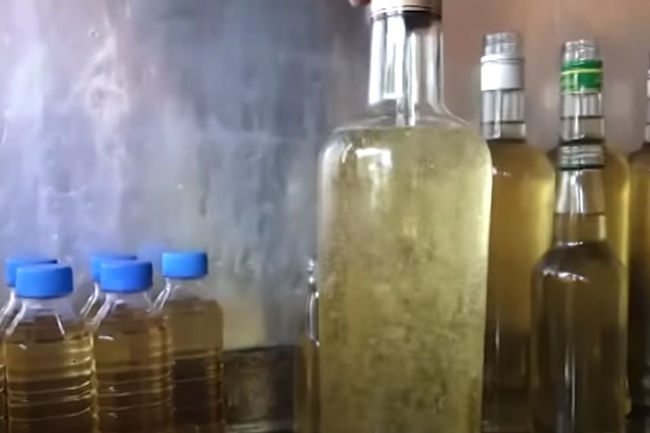ITI commences further analysis on coconut oil containing carcinogen
March 27, 2021 01:59 pm
Further analysis on the imported coconut oil consignment containing the highly carcinogenic substance Aflatoxin has commenced, says the Director-General of Industrial Technology Institute Radhika Samarasekara.
She said the samples of the said coconut oil stock were received by the Industrial Technology Institute.
Food Safety Unit of the Health Ministry recently confirmed that a highly carcinogenic substance was identified in a stock of imported coconut oil.
Concerns were raised as reports claimed 13 containers with 183,000kg of coconut oil were released by the Customs.
However, the Customs clarified that the containers were released only to the warehouses of the respective companies. Upon receiving the quality inspection reports on March 04, the coconut oil stock in question was ordered to be re-exported, the Customs stressed.
Health Ministry’s Food Safety Unit stated that samples were directed to a government-approved laboratory for a subsequent test following the appeals from the importing companies.
In the meantime, the Ministry of Trade announced today that 100 samples of coconut oil will be collected from wholesale and retail outlets island-wide, and sent to the Food Control Administration Unit at the Health Ministry as well as to the Coconut Development Authority for testing in order to ascertain whether the substance has entered the local market.
Sri Lanka Standards Institution (SLSI) meanwhile rejected the allegations in the media and social media claiming that senior officials of the Institute had authorized the sale of unhealthy coconut oil imported to the country by four importers.
The SLSI dismissed the claims as “totally fabricated and false.”
SLSI continuously conducts laboratory testing for Aflatoxin in coconut oil imported into the country by all importers to ascertain that it conforms to the set standard of 10micro grams/Kg, the statement issued on Friday (March 26) by its Director-General read.
It further stated: “The 4 said importers namely Ali Brothers Put Ltd, Sena Mills Refineries, Edirisinghe Edible Oils and Katana Refineries are long-standing importers of Oil and their samples are under test for which results will be released within a few days.”
Meanwhile, Senior Professor of Medical Faculty of University of Kelaniya Dr. Arjuna P. De Silva, who explained the dangers of Aflatoxin, said this carcinogen is mainly harmful to the liver, however, it can damage other organs as well.
Consumption of large amounts of Aflatoxins, which is produced by a fungus called Aspergillus flavus, can lead to acute liver failure, bleeding, cirrhosis and liver cancer, he said, adding that consuming smaller amounts of Aflatoxin for a long period of time can also be damaging.
Aflatoxin can have adverse effects especially on the growth of children, Dr. De Silva stressed.












